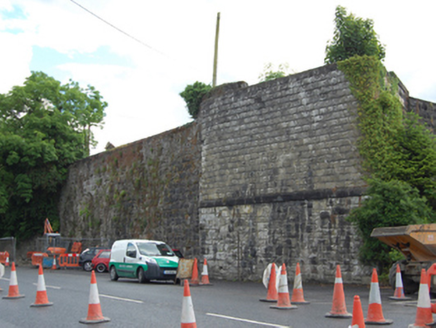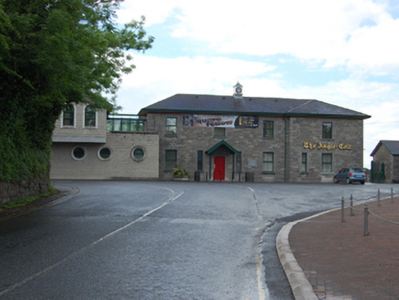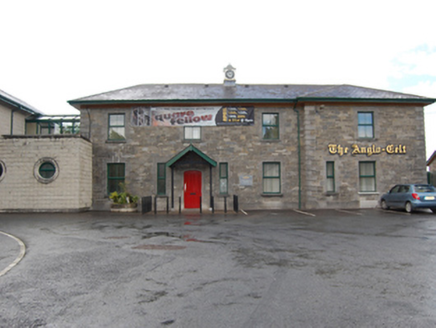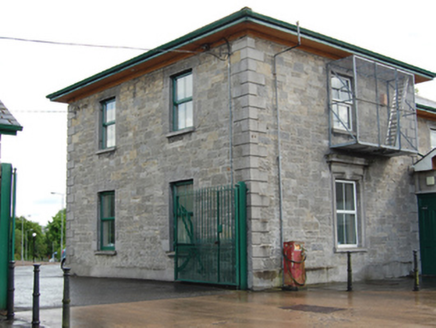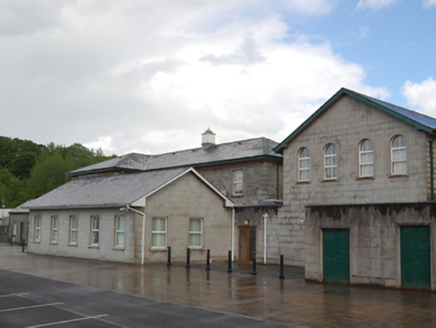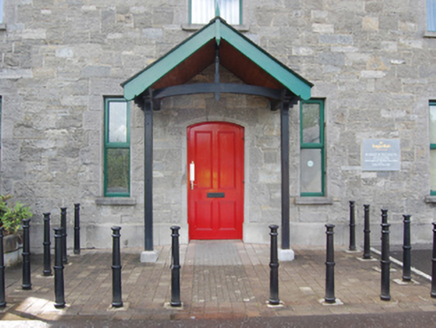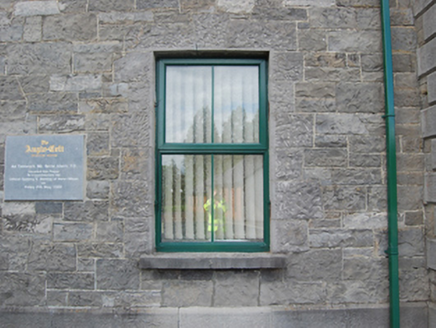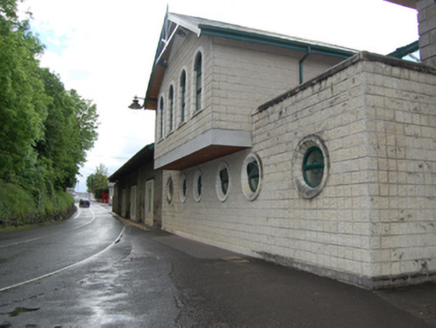Survey Data
Reg No
40000452
Rating
Regional
Categories of Special Interest
Architectural, Historical, Social
Previous Name
Cavan Railway Station
Original Use
Railway station
In Use As
Office
Date
1860 - 1865
Coordinates
241466, 305139
Date Recorded
06/08/2012
Date Updated
--/--/--
Description
Attached four-bay two-storey former railway station, built 1862-3, with advanced bay to north and gable fronted timber canopy to entrance. Renovated and extended to the side and rear, c.2000, now in office use. Hipped slate roof with overhanging bracketed eaves and replacement rainwater goods and recent latern with clock to ridge. Uncoursed snecked limestone ashlar walls with skewed perpend joints and rough-dressed finish, punch-dressed plinth and V-jointed block-and-start quoins. Square-headed window openings with cut-stone sills, dressed arrises and reveals and uPVC windows. Moulded ashlar architraves to windows in advanced northern bay to rear formerly facing platform with cornice hood to ground floor window. Slated canopy composed of timber truss and posts with chamfer-stop detail set on chamfered stone blocks. Segmental-headed doorcase with cut-stone roll moulding to arris and four-panelled door with segmental head flanked by narrow window openings. Four-bay ancillary building to the north formerly opening onto platform to similar detail with pitched slated roof, V-jointed quoins, ashlar window architraves and pair of central doors with roll-moulded arrises. Some cut-stone blocks to platform edge survive.
Appraisal
A mid-nineteenth century railway station built in an austere Italianate style forming the centrepiece of a group of structures associated with the former Cavan Railway Station, which closed by 1960. The station was built to designs of George Wilkinson (1814-1890), architect of a number of other stations on the line for the Midland & Great Western Railway Company. The dressings and detailing of the stonework display the high quality of design and craftsmanship typical for Victorian railway architecture. The group contributes to the industrial heritage of Co. Cavan and forms part of the extensive railway network that developed in Ireland during the nineteenth century.
